A US-based private college provides educational programs in health care, business, information technology, and other domains. The college has an open admission policy and also hosts international students.
The customer signed up for Salesforce Marketing Cloud to automate their marketing processes. In particular, they wanted to automatically send relevant emails to customers throughout all phases of the customer lifecycle. Our team was asked to share our experience with creating personalized customer journeys to help the client get the most out of the leading product in the world of marketing automation.
Marketing Cloud Implementation
We implemented the initial Marketing Cloud setup, which included rolling out MC Connect, Sender Authentication Package (SAP), Reply Mail Management, Sender Profiles, Standard Subscription Center, and Brand Builder.
While doing the initial setup, it was crucial to pay attention to several things to ensure that Marketing Cloud works properly.
Configuring SAP to Reach Customers’ Inboxes
If you don’t want your emails to get flagged as spam, you need to set up Sender Authentication Package. When activating the package, it’s important to follow a specific sequence of actions:
- Set up a private domain
- Create a dedicated IP address
- Get all your links branded
- Enable Reply Mail Management to automate unsubscriptions and more
IP Warming to Avoid Looking Suspicious
When an IP address is new, the mail coming from it can look suspicious to email service providers and may not get past spam filters. To establish a trustworthy reputation and increase email campaign deliverability, we recommend taking measures to warm the IP:
- Define email sending limits per domain according to the standards of a particular email service provider
- Properly segment target audiences so that the emails they receive are relevant
- Move gradually from low to moderate volume of recipients
Following Legal Requirements
Marketing Cloud requires that all messages comply with the CAN-SPAM Act. According to this law, emails can be either transactional—previously approved by the recipient to facilitate commercial transactions—or commercial—to encourage sales. Every email must be legit and comply with the standards set forth by the act. For example, commercial emails must include an option to unsubscribe and the physical mailing address of the sender. You should also create corresponding send classifications in the cloud. If you aren’t sure what type of email you’re sending, it’s best to define it as a commercial one.
How to Get the Most Out of Marketing Cloud
When the initial setup was finished, we were asked to explain how to use Marketing Cloud correctly and maximize the benefit from it. We carried out a series of live video training sessions with the college’s marketing coordinator. We explained what tools to use to personalize emails to help them reach the right audience—to achieve high open rates and run successful advertising campaigns.
Customizing Email Templates
To create email templates with personalized attributes, dynamic content, and custom fonts, you should be familiar with HTML, CSS, and AMPscript. These technologies also come into play when working with CloudPages—in particular, when creating capture forms.
Building Correct Audiences
Marketing Cloud provides an option for filtering contacts with the help of UI tools. However, sometimes you need to combine lists of audiences compiled according to different criteria—for example, a list of students and a list of purchased courses—into a new list. In such cases, you can use Automation Studio to write an extraction script and Data Extensions to keep records for creating audiences with certain attributes.
Synchronizing Contacts
For those already using Salesforce CRM, it would be beneficial to synchronize the data from the CRM with Marketing Cloud to get more complete customer profiles and enrich contact lists. To connect Salesforce CRM with Marketing Cloud, you will need to install Marketing Cloud Connect.
Best Practices for Marketing Cloud Campaigns
Before starting email marketing campaigns, it’s crucial to ensure emails are composed properly and look good. Therefore, we provided a demo for the customer where we shared the best practices for creating email campaigns with Email Studio, an integral part of Marketing Cloud. We recommend paying particular attention to the following:
- Improving mobile experience
- A/B email testing
- Identifying potential spam triggers in the body of an email
- Verifying and correcting email scripting
- Previewing your emails exactly as your customers will see them
- Making emails personal
Salesforce provides documentation for every product. However, there’s always a lot of information to digest, and it takes time to figure out the instructions on your own. Salesforce professionals can set up the products you need and show you how to work with them, which will help you save time, avoid pitfalls, and start getting the most out of email marketing campaigns right away.
RELATED ARTICLE For more about the benefits of Sender Authentication Package, check out our post about SAP for Marketing Cloud on Salesforce Ben.
project Highlights
Technology Highlights


